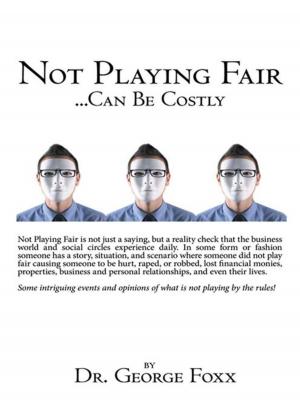Your Flexxible Brain Neuro-Nastics Building a Bigger Better Brain
Nonfiction, Science & Nature, Science, Health & Well Being, Psychology| Author: | Robert Milton | ISBN: | 9781456751265 |
| Publisher: | AuthorHouse | Publication: | June 21, 2011 |
| Imprint: | AuthorHouse | Language: | English |
| Author: | Robert Milton |
| ISBN: | 9781456751265 |
| Publisher: | AuthorHouse |
| Publication: | June 21, 2011 |
| Imprint: | AuthorHouse |
| Language: | English |
New genetic and brain scan research has created a revolution in modern scientific thinking regarding the human brain. Recent neuroscience has clearly demonstrated that repetitive rehab, or what Dr. Milton calls neuro-nastics can and does change specific physical brain structures (enlarging or shrinking). As a shortcut Dr. Milton calls such changes - brain nodules. He goes on to ask and answer the question: Do nodulized individuals (or more precisely their morphed, physically modified brains) have the capacity to abruptly change thought direction without considerable amounts of new content loading? (e.g. neuro-nastics, think Rehab). If peers, parents and mentors have repeated the same information spiel or indoctrination, (repetitive rote learning, reoccurring experiences, hours of mumbled prayers, drumming, dancing, juggling and a myriad of other habitual behaviors and/or thoughts), Dr Milton says, It is unlikely that such individuals would be able to entertain or even see another point of view because physical tissue changes in his or her physical brain tissue may not allow it. ,
Free will, Positive thinking, Womens rights, Religious Science, Evolution, Immigration and Addiction are just a few of the timely topics covered in your FLEXXIBLE brain.
New genetic and brain scan research has created a revolution in modern scientific thinking regarding the human brain. Recent neuroscience has clearly demonstrated that repetitive rehab, or what Dr. Milton calls neuro-nastics can and does change specific physical brain structures (enlarging or shrinking). As a shortcut Dr. Milton calls such changes - brain nodules. He goes on to ask and answer the question: Do nodulized individuals (or more precisely their morphed, physically modified brains) have the capacity to abruptly change thought direction without considerable amounts of new content loading? (e.g. neuro-nastics, think Rehab). If peers, parents and mentors have repeated the same information spiel or indoctrination, (repetitive rote learning, reoccurring experiences, hours of mumbled prayers, drumming, dancing, juggling and a myriad of other habitual behaviors and/or thoughts), Dr Milton says, It is unlikely that such individuals would be able to entertain or even see another point of view because physical tissue changes in his or her physical brain tissue may not allow it. ,
Free will, Positive thinking, Womens rights, Religious Science, Evolution, Immigration and Addiction are just a few of the timely topics covered in your FLEXXIBLE brain.















